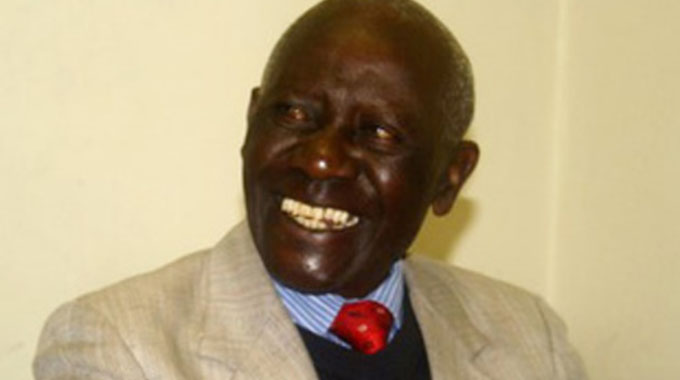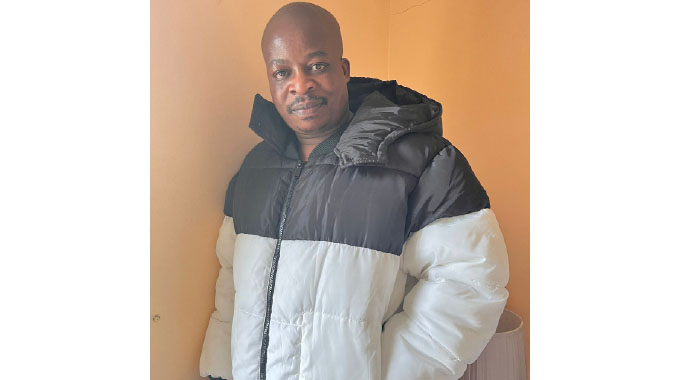King George was the Real Deal

Charles Mabika-Special Correspondent
WHEN Hollywood producers made the 1982 blockbuster movie, “An Officer And A Gentleman,’’ they probably had George “Mastermind” Shaya in mind.
A tricky right winger, widely regarded as the finest footballer to grace our fields, was a brilliant and hyper-active, artist.
A man who, somehow, transformed himself into a humble character, off the pitch.
He was 74, not 77, as widely reported, according to his wife, Agness.
The Mastermind had not been well in the last couple of years, following a nagging right leg ailment, which eventually needed doctors to amputate it.
A former national team captain, the Dynamos playmaker, who wore the No 7 jersey at both sides, was a rare breed of footballers.
Now and again, he would use his brilliant vision and guile, to outwit the opposition, earning himself the nickname “The Mastermind,’’ which was coined by the former Sports Editor of The Herald, the late Alan Hlatywayo.
Hlatywayo felt the little magician possessed what is referred to as the “sixth sense,” the ability to conjure something, without using the ordinary “five senses.”
That depiction summed up Shaya, at his very best, for either the national team or the Glamour Boys.
Born in Mbare, Shaya attended Chitsere Primary School, in the same suburb, where he was quickly thrust into the first team, while still in Grade Three.
His strike partner was the late Peter “Thunderboots” Nyama.
His talent was quickly noticed by many clubs and he featured for various amateur sides before he joined lower league side, Nimfa Rovers.
In those early years, his sublime dribbling skills had already earned him the nickname “Matanyera”.
He would shine for sides like St Paul’s Musami, Mashonaland United (later renamed Zimbabwe Saints) and, of course, Dynamos.
The Mastermind won the Soccer Star of the Year award a record five times.
In the first year he grabbed the prestigious award, he was drafted into the national side, for the 1970 World Cup play-off qualifier in Mozambique, against Australia.
He was the only Dynamos player called up by Scottish coach Danny McLennan in the strong 30-man contingent.
After three matches, including two replays, the Socceroos triumphed. Shaya was one of the stars and even received offers from the Australians to come and play professionally Down Under. But, Shaya appeared like a man who always loved playing at home.
He broke off a three-week trial stint at Portuguese giants Benfica, after only one week.
Then, there was Greek side FC Appolon and Moroka Swallows of South Africa, who both came calling.
He was a menace, down the right flank, and would cut inside to waltz his way past a cluster of defenders.
And, he would always lay the ball for someone else to score, even if he had only the ‘keeper to beat.
His favourite finishes were penalties, he would just stand over the ball before nonchalantly picking his spot, past the ‘keeper.
In a career spanning one-and-a-half decades, Shaya scored 30 goals from the spot, missing only once.
It was from the spot where his most outrageous stunt came, during a league match in 1979, when Dynamos took on Rio Tinto.
The Glamour Boys were awarded a penalty after Oliver “Flying Saucer” Kateya was upended inside the box.
Before the spot-kick was taken, Shaya summoned all the Dynamos players to form a circle and said something to them.
Then, he stepped up to take the kick and slightly pushed the ball forward.
Midfielder Kuda Muchemeyi rushed from outside the penalty box, took over possession and dribbled past ‘keeper Raphael Phiri before rolling the ball into an empty net.
Was this allowed?
As a youngster then, I wasn’t too familiar with the rules of the game so I was equally bewildered.
The referee also seemed also to have been confused as he first looked at his two assistants who also looked stunned.
After what seemed an eternity, he allowed the goal to stand, at Gwanzura.
Dynamos scored a second, Shaya waltzing through the Rio Tinto defence to set up David “Broom Boy” George, and the match ended 2-0.
Five years ago, I couldn’t stop laughing after many European media outlets claimed Lionel Messi was the first, to pass the ball from the penalty spot, in Barcelona’s match against Celta Vigo. I said to myself, I saw this at Gwanzura, in 1979. Although The Mastermind was a devastating performer on the pitch, he didn’t like publicity and never claimed credit for his team’s victories.
He would withdraw into a shell and hardly gave interviews before, or after matches.
After he hung up his boots, Shaya refused to criticise the deteriorating standards, in our game. In his usual soft tone, he would only say, “you’ve got to give them more time and support.”
One of his greatest performances came when he masterminded DeMbare’s 7-6 aggregate victory over Orlando Pirates, in the ‘76 Southern African Clubs Champions Cup’s final. That side, which contained the likes of George, Kateya, Shepherd Murape, Shadreck Ngwenya, Simon “Tangwena” Sachiti, Muchemeyi, Shaw “Kojak” Handriade, Isaac Nhema, Cremio Mapfumo and ‘keeper Matthew Mwale.
It is regarded, by many, as the finest team, in the history of local football.
Meanwhile, Chimurenga music guru, Thomas Mapfumo, says local football legends were not getting a fair dividend from their game, when compared to their counterparts in other parts of Africa.
Mapfumo used to own local Premiership club, Sporting Lions, which played in the top-flight league, at the turn of the millennium.
He said Shaya was one of those who should have reaped huge financial rewards, for the part he played in the game.
The likes of Samuel Eto’o, Didier Drogba and Sadio Mane, said Mapfumo, had been rewarded for their exploits many of them now had beautiful houses, luxury cars and even private jets. Mapfumo said it was disappointing that the local football constituency appeared to have systems, which frustrated the likes of Shaya, from pursuing their dreams of becoming the leaders of the game.











Comments